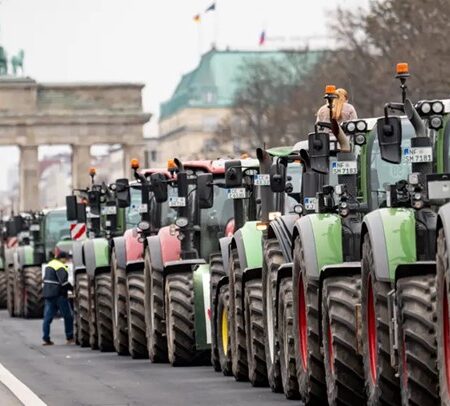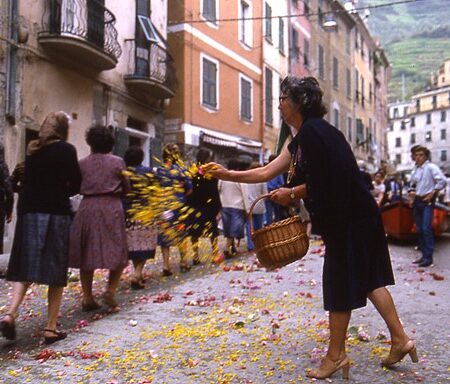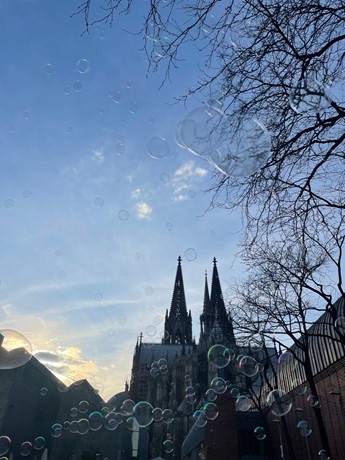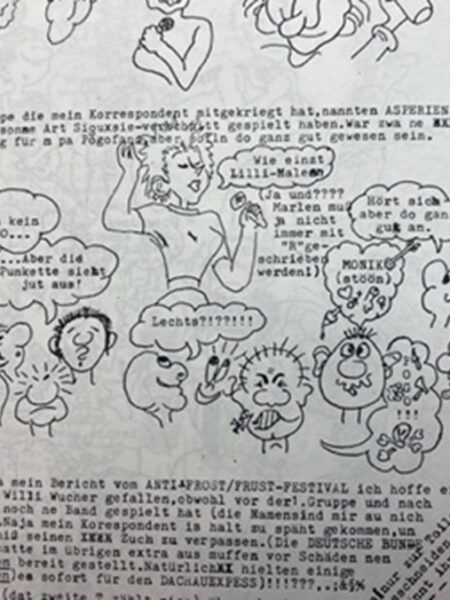INTRODUCTION
The barracks system in Nigeria is one made up of army officers’ and their families with different culture, background and religion and the only connection is the fact that they are serving in the army. The desire to understand how the army officers’ and their families have lived together in peace and cohesion in the barracks despite their differences and how these families have been able to support one another when the officers are on mission trips through the organization, NAOWA is what birthed this research work and it is pertinent to note that NAOWA as an organization has been successful in the role of promoting social cohesion.
AIMS AND OBJECTIVES OF THE STUDY
The general aim of this study is to historicize the growth and development of Nigeria Army Officers Wives Association, NAOWA in 2 Division, Ojoo Cantonment.
The specific objectives of this study are therefore to:
- Explore the composition and evolution of NAOWA over the period.
- Investigate the social life of wives of Army Officers in the barracks.
- Examine the role of wives of military personnel in the social cohesion of army officers’ families in the barracks.
- Highlight the challenges faced by Nigeria Army Officers Wives Association, NAOWA in the carrying out of their activities.
- Evaluate the contributions of Nigeria Army Officers Wives Association, NAOWA to the cohesion of Army Officers Families in the barracks.
EVOLUTION OF NAOWA
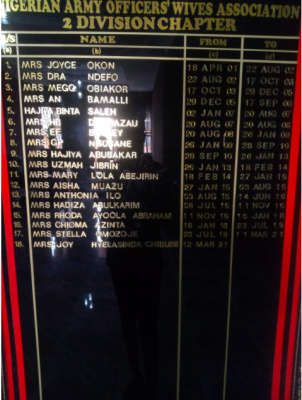
Hellen Callaway in Gender, Culture and Empire: European Women in Colonial Nigeria mentioned that the activities of army officers’ wives was mainly parties, social gatherings without any impactful thing1. However, their activities changed as at 1960 with the establishment of NAOWA. According to Maryam Babangida in The Home Front, “the peculiar nature of soldiering, which makes it normal for officers’ wives to be literally abandoned a number of times made it paramount the need for a forum where the Nigeria Army Officers wives may at least achieve a sense of social communion”2. Apart from being a social organization, it is also a charitable and philanthropic association of which membership is voluntary3.
NAOWA was formed in 1960 when Nigerian Army gained autonomy with the country’s independence. It was known as the Army Wives Association (AWA). As mentioned by Mrs. Damilola Onete, the PRO of NAOWA Ojoo Chapter, the organization is strictly for wives of commissioned officers. Maryam Babangida in “The Home front” explained that the name was changed to the current one, NAOWA because the previous name, AWA was bland and non-descript4. It was changed on attainment of Nigerias Republican status in 1963 and Victoria Aguyi-Ironsi became the first indigenous president of the association.
Their primary role is “to promote the welfare of the troops and their families and to foster the bond of friendship, unity and understanding among officers’ wives”5 and this is evident in the motto; unity and charity. Verity McInnis in Women of Empire: Nineteenth-Century Army Officers’ Wives in India and the U.S West , which is similar to the women that constitutes NAOWA stated “the officers’ wives shared their husbands’ sense of mission and also transformed the barracks through transferring, adopting and adapting middle-class values and customs”6. This common sense of purpose all played a role in the founding of NAOWA.
As mentioned in the interview with Mrs Damilola Onete, the national body is automatically headed by the wife of the Chief of Army Staff and the wife of the Commander in each military location was made Branch President. Other members with executive positions are elected and their tenure lasts for two years.
In fact, the activities of NAOWA has been of a worthy emulation and has set the pace for establishment of similar organizations in African states. One of such is the Military Wives Association of Kenya, which was established 17th March, 20217.
ACTIVITIES AND ACHIEVEMENT OF NAOWA, OJOO CHAPTER

NAOWA is not just an association for wives of military officers’ in Nigeria. Maj.Iweha of the Public Relations Department in the Ojoo cantonment in the oral interview mentioned that the activities of NAOWA have earned them the recognition of the United Nations. The school administrator of NAOWA creche, nursery and primary school, Mrs. Rose Achedo mentioned that the activities of NAOWA in Ojoo chapter started with the establishment of the NAOWA creche, nursery and primary school which is located in the Ojoo barracks. It was commissioned on 22nd January, 1990 and it accomodates both officers’ and non officers’ children. As a way of promoting unity, the school offers scholarship to children of slain officers’. In addition, officers wives that are qualified but do not have a job are employed to teach in the school with a tangible salary. There is also another NAOWA school founded in Leutmack barracks, Mokola, under the Ojoo chapter of NAOWA.
As stated by the current PRO of NAOWA, Div 2 Ojoo chapter, there is also a secretariat where meetings are held, decisions are being deliberated on and elections are carried out. The organization started with about 20 members and by now they have over 100 members.
According to the interview with Mrs.Damilola Onete, in the aspect of social activities, NAOWA Ojoo chapter organizes parties for religious festivals such as Sallah party, Christmas party. During social functions of a member such as naming ceremony, burial ceremony, birthday party, they come together and support such member with their presence and gifts.
There are also organized sport events held at the sports complex in the barracks and health seminars to keep the army officers’ wives fit.
NAOWA Ojoo has a skill acquisition centre, Salamatu Yahaya Skill Acquisition Centre, which was commissioned in December,2021. The skills range from hairstyling, garment construction, catering and event management to perfume and candle making. The acquisition centre is majorly to empower officers’ wives and it is in fact open to the public at a token.
SUCCESSES AND CHALLENGES OF NAOWA IN THE ROLE OF SOCIAL COHESION AMONG ARMY OFFICERS FAMILIES
In the aspect of education, NAOWA Ojoo chapter, has established two creche, nursery and primary school and these schools have helped in social cohesion. School buses are also provided here for easy transportation. Children from different background mix and learn together. Wives of Army Officers’ that are qualified are employed to teach here also.
“My experience in NAOWA has been nothing but awesome. I’ve been able to fully integrate into the barracks system that is filled with people of different backgrounds which has largely broadened my knowledge. My organizational skill has also improved. I’m a Linguist but I’ve added an additional skill; catering, with the establishment of the Salamatu Yahaya Skill Acquisition Centre. NAOWA has also been a platform for me to give back to the society through our regular donations to the less privileged and various projects for the betterment of the society”
– Damilola Onete
On health, NAOWA has donated medical items to the clinics in the barracks severally. The organization has also organized health seminars to educate the women on family planning and first aid treatment.
NAOWA has also been a forum of socialization for newly married officers’ wives so as to adjust well to the new environment and military world. Social activities such as religious festivals and a yearly dinner party is always celebrated to continue to promote unity and put smile on each others’ faces.
The school administrator of NAOWA creche, nursery and primary school, Mrs.Rose Achedo stressed the point that the emotional trauma and distortment that comes with the absence of the officers when on mission has been bearable as a result of the social activities that promote interaction as stated above. This is also assertive to Oluremi Obasanjos statement about her traumatic ordeal as a Nigerian Army Officers wife which included becoming distant from friends and families and having to raise their children singlehandedly8.
As noted in the interview with Mrs. Damilola Onete, NAOWA as an organization has been able to develop organizational skills of its members. NAOWA is composed of a body of executive members as well as committee members. This includes hours of brainstorming, planning and organizing and this has been a leverage for members in terms of sharpened organizational skills.
Any successful organization is always faced with challenges and the way of tackling these challenges is what makes it successful. As at 1990 when the NAOWA creche, nursery and primary school was established, memories of the civil war that ended in 1970 was still fresh in the minds of people. By 2001, NAOWA Ojoo chapter was much organized with a president. The issue faced then was the refusal of the army officers’ wives to join because they saw it as a group for gossips and chitchat as that was initially what the officers’ wives did to ease the loneliness caused by their husbands’ absence. However as at 2022, they have over 100 members. This change happened because the organization was able to convince the skeptical officers’ wives with their philanthropic activities that impacted positively to the barracks community and even beyond. Through this, many were prompted to join and even be active members.
Another issue currently faced by NAOWA Ojoo Chapter, is the low turnout of women for the vocational training in the skill acquisition centre. Even though the members have been well informed about the vocational training, they hardly turn up for trainings. Many of them actually feel they do not have start up fund to start their business after learning a skill.
As stated by an anonymous interviewee, in the aspect of finance, the association is non-governmental and non-profit making with no allocation and intervention from either federal or state government, hence, funds are gotten externally; through the benevolence of individuals and corporate bodies. This can be sometimes stressful as projects drag behind sometimes.
CHANGE AND CONTINUITY
There has been continuity in the objectives of NAOWA. Just as the motto of NAOWA states “Unity and Charity”, all their activities are on promoting unity and their philanthropic activities emphasize charity. From its inception in 1960, when it was known as Army Wives Association (AWA), to the period of study 1990- 2015, it has organized support for army officers’ families and welfare activities that has promoted social cohesion. In NAOWA Ojoo Div 2 Chapter, projects such as the NAOWA nursery and primary school coupled with scholarship for children of deceased officers’, Salamatu Yahaya Skill Acquisition Centre, loans for start up businesses among officers’ wives have ensured the social cohesion of army officers’ families.
The major change from inception to now is the perception of NAOWA to the world. As discussed by Maryam Babangida in The Home Front, in the 90’s, NAOWA was seen as just a gossip and chitchat outlet but as at now, remarkable change has been seen in this aspect. The organization has not only promoted social cohesion among army officers’ families but also contributed to the growth of the society at large. David J. Parkin in The Politics of cultural performance, infact stated that NAOWA is the most powerful women organization in Nigeria9.
Conclusion
NAOWA has played a significant role in the promotion of social cohesion among army officers’ families. From empowering the officers wives and children with vocational skills, ensuring proper education of the officers’children as well as organising social functions, NAOWA has been able to ensure the peaceful cohabitation of all the families. If any disagreement comes up, it is settled peacefully and religious crisis is very rare. The emotional trauma and distortment that comes with the absence of the officers when on mission has been bearable as a result of the social activities that promote interaction. The inter-group relations of women centred on religious activities, social club, town meetings, and civic responsibility, among others These activities were significant in the social system of the barracks, not only because of their benefits but the advantage of interdependence and exchange of ideas. These activities have contributed to integration in the military and realization of set objectives.
Endnotes
- Callaway, H. (1987). Gender, Culture and Empire: European Women in Colonial Nigeria.
- Babaginda, M. (1988, p. 63).The Home Front
- Babangida, M. (1988, p. 63). The Homefront
- Babangida, M. (1988, p. 67). The Homefront
- Babangida, M. (1988, p. 63). The Homefront
- McInnis, V. (1957).Women of empire: Nineteenth-Century Army Officers’ Wives in India and the U.S West
- Oral interview with Maj Iweha. Retrieved from military wives association of Kenya
- Obasanjo, O. (2008). Bitter-sweet: My Life with Obasanjo.
- Parkin, D. ( 1996)The Politics of cultural performance.
Interviewees and details
- Mrs Damilola Onete, Ibadan, Nigeria (Current PRO of NAOWA Ojoo Div 2 Chapter and a Linguist by profession)
- Mrs. Rose Achedo (School administrator, NAOWA creche, nursery and primary school and former NAOWA member)
- Maj. Iweha, public relations department, NAOWA Ojoo Div 2 Chapter
- Anonymous interviewee, resident of the Div 2 barracks, Ibadan.
